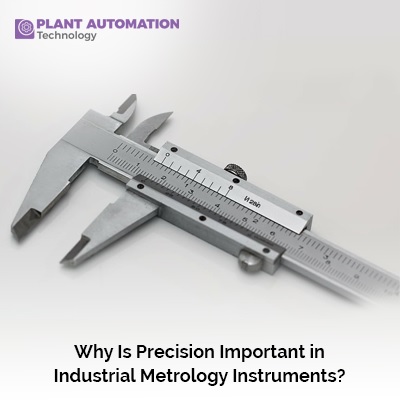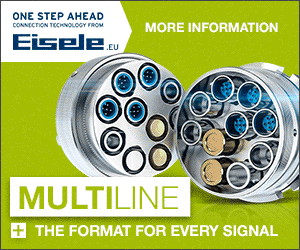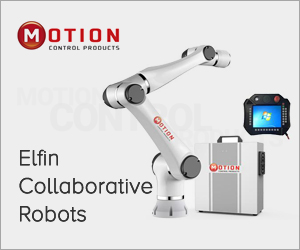Why Is Precision Important in Industrial Metrology Instruments?

Introduction:
Precision in industrial metrology instruments is paramount for ensuring the accuracy and reliability of measurements in manufacturing processes. Metrology, the science of measurement, plays a pivotal role in industries where precision and accuracy are critical factors for quality control, product development, and overall operational efficiency. In this article, we will delve into the importance of precision in industrial metrology instruments, exploring its impact on various aspects of manufacturing and highlighting the significance of advanced measurement technologies.
Understanding Precision in Metrology:
Precision in metrology refers to the ability of a measuring instrument to consistently provide accurate and repeatable results. In the industrial context, precision is crucial because it directly influences the quality of products, adherence to specifications, and overall process control. Instruments with high precision can measure dimensions, angles, and other parameters with a low margin of error, ensuring that manufactured components meet stringent standards.
The Impact of Precision on Quality Control:
Quality control is a cornerstone of modern manufacturing, and precision in metrology instruments is fundamental to its success. Manufacturers must adhere to tight tolerances and specifications to produce components that meet or exceed customer expectations. Instruments with high precision allow for the detection of even minute deviations from the desired specifications, enabling prompt corrective actions and preventing defective products from entering the market.
| Also Read: Latest Advancements in Industrial Instrumentation for Automation |
In industries such as aerospace, automotive, and medical devices, where safety and reliability are paramount, precision in metrology instruments is non-negotiable. Any deviation from specified measurements can have severe consequences, leading to product failures, safety hazards, and costly recalls. Therefore, investing in precision metrology instruments becomes an imperative for manufacturers aiming to maintain high-quality standards.
Achieving Consistency in Production:
Consistency is a key factor in industrial processes, and precision in metrology instruments contributes significantly to achieving and maintaining it. Consistent measurements ensure that each component or product produced adheres to the same standards, reducing variations in the manufacturing process. This not only improves overall product quality but also enhances the efficiency of production lines.
Precision in metrology instruments allows manufacturers to identify and rectify sources of variation in the production process. By maintaining tight control over dimensions and tolerances, companies can minimize waste, improve yield, and optimize resource utilization. In turn, this contributes to cost savings and increased competitiveness in the market.
Adapting to Advanced Manufacturing Technologies:
As manufacturing processes evolve with advancements such as Industry 4.0, precision in metrology instruments becomes even more critical. Technologies like additive manufacturing (3D printing) and advanced materials require precise measurements to ensure the integrity and functionality of the final products. In these cutting-edge processes, where traditional measurement methods may fall short, high-precision metrology instruments play a vital role in validating the quality and accuracy of components.
Additionally, the integration of automation and robotics in manufacturing relies heavily on precise measurements for tasks such as robotic assembly, quality inspection, and calibration. Precision metrology instruments enable seamless collaboration between humans and machines, ensuring that automated processes are executed with the utmost accuracy.
Meeting Regulatory Standards:
Many industries are subject to stringent regulatory standards and certifications, necessitating compliance with specified tolerances and measurements. Precision in metrology instruments is instrumental in meeting and exceeding these regulatory requirements. Whether in pharmaceuticals, electronics, or any other regulated sector, accurate measurements are essential for ensuring product safety, efficacy, and legal compliance.
Failure to comply with regulatory standards can lead to severe consequences, including fines, legal actions, and damage to a company's reputation. Precision metrology instruments provide the necessary assurance that products are manufactured in accordance with industry regulations, safeguarding both the company and the end-users.
The Role of Metrology in Research and Development:
Precision in metrology extends beyond production and quality control; it is equally crucial in research and development (R&D). In the early stages of product development, accurate measurements are essential for prototyping, testing, and validating design concepts. Metrology instruments with high precision facilitate the iterative process of refining prototypes and ensuring that final products meet the intended specifications.
Researchers and engineers rely on precise measurements to analyze materials, study mechanical properties, and assess the performance of prototypes. This data-driven approach enables informed decision-making throughout the R&D phase, leading to the development of innovative and reliable products.
Challenges and Advances in Precision Metrology:
While precision in metrology instruments is indispensable, achieving and maintaining high levels of precision comes with its own set of challenges. Environmental factors, mechanical wear, and calibration drift can all contribute to a reduction in instrument accuracy over time. To address these challenges, manufacturers invest in regular calibration, maintenance, and, when necessary, upgrading to state-of-the-art metrology technologies.
Advances in metrology technologies, such as laser scanning, coordinate measuring machines (CMMs), and optical measurement systems, have significantly improved the precision levels achievable in industrial settings. These technologies offer higher speed, increased automation, and enhanced accuracy, allowing manufacturers to stay ahead in a competitive market.
Conclusion:
In conclusion, precision in industrial metrology instruments is a linchpin for success in modern manufacturing. The ability to measure with high accuracy and repeatability directly impacts product quality, process efficiency, and overall competitiveness. As industries continue to embrace advanced manufacturing technologies and face increasing regulatory scrutiny, the role of precision in metrology becomes even more pronounced.
Manufacturers must recognize the pivotal role of metrology in achieving and maintaining precision, making informed investments in cutting-edge measurement technologies. The continuous pursuit of precision in metrology is not just a best practice; it is a strategic imperative for companies looking to thrive in a global marketplace that demands excellence in every aspect of production.






